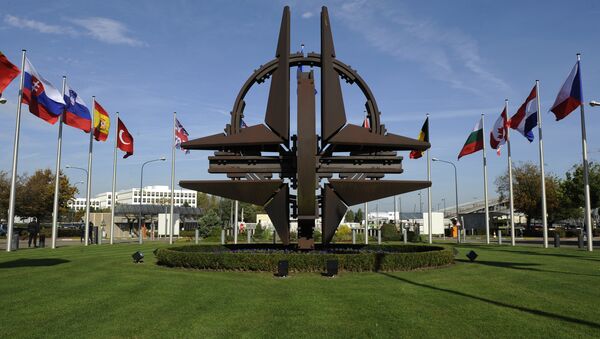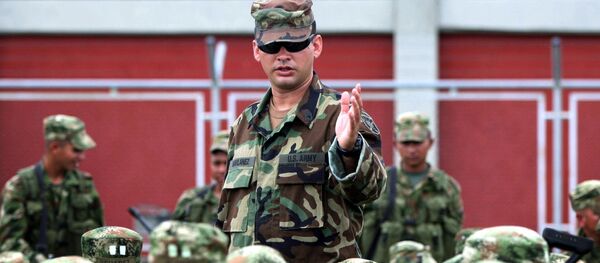Venezuela
Sergio Rodríguez Gelfenstein, a Venezuelan analyst, thinks that the Colombian government "in its eagerness to show loyalty to the United States has crossed the line that no other administration had ever crossed.”
According to Gelfenstein, this step "violates several international treaties" such as the 1968 Treaty for the Prohibition of Nuclear Weapons in Latin America and the Caribbean, also known as the Treaty of Tlatelolco.
Santos stated that Colombia won’t participate in NATO military operations. However, the Venezuelan analyst thinks that joining NATO "where some of its members have nuclear weapons that could be transferred to Colombia," violates the Treaty of Tlatelolco.
Bogota’s decision formalizes the established situation: “The US military bases in Colombia have existed for a while, but this agreement formalizes them.”
Ecuador
Daniel Pontón, the dean of the Center for Security and Defense of the Institute of Higher National Studies of Ecuador, told Sputnik that a South American country joining NATO may be interpreted as "the intention to further block Venezuelan influence in the region.”
"If there is no change, this step could be a death sentence for UNASUR, unless the Colombian right surprise us," he stresses.
UNASUR was founded in 2008 by 12 South American countries. In April 2018 six member countries (Argentina, Brazil, Chile, Colombia, Paraguay and Peru) decided to suspend their membership.
Peru
According to Óscar Ugarteche, a Peruvian economist, "Colombia's entry into NATO is a success for US foreign policy" in the sense of "placing a South American country in the North Atlantic, where it doesn’t belong" and maintaining the alliance with Europe.
"This is a sign that the US and the Europeans may start interfering in the hemisphere’s business, a bit like they do in the Middle East, so as not to act on their own. I think the US knows that it can’t act in Latin America with the help of other countries of the region as nobody’s going to accompany their military adventure in the hemisphere," the expert thinks.
Ugarteche is undecided regarding Lima’s attitude towards Colombia’s entry into NATO but in any event "Peru is a very strong ally" of Bogota: both countries have free trade agreements with the US and lowered their presence in the Andean Community.
In that sense, the current situation "could mean a foreign policy pivot to seek an alliance of the same type." "I hope this isn’t so, but it’s highly likely,” he said.
Brazil
José Reinaldo Carvalho, Secretary for Global Affairs of the Communist Party of Brazil, told Sputnik that "Colombia’s entry into NATO is a very serious precedent" that violates several regional resolutions.
Apart from the Treaty of Tlatelolco he mentioned the declaration by the Community of Latin American and Caribbean States (CELAC) of 2014 which established that "the region is a zone of peace and cooperation."
It “threatens the stability and security of other countries, even Colombia itself.” With Colombia joining NATO, Santos, one of the architects of the 2016 FARC agreements and Nobel Peace Prize laureate, "could reverse" his peace-keeping achievements.
Carvalho stressed that a measure like this falls within the "diplomatic and military activities" aimed at Venezuela. In this regard, he recalled the troop exercises of Peru, Colombia and Brazil as part of AmazonLog17 Operation in November 2017 supported by the Pentagon. This already "marks a precedent."
Carvalho is undecided regarding what Brasilia will do, but he said that Michel Temer’s government has a policy of submission to the US and aggression against such progressive countries as Venezuela."
The expert recalled that "Brazil was one of the promoters of the Lima Group, which said that it wouldn’t recognize Venezuela’s election results." He also thinks that in this regard Brazil isn’t going to oppose Washington.
"Obviously, Washington and Brussels didn’t like this. Colombia's entry into NATO is a measure taken on our continent to put an end to the claims on our peoples’ sovereignty and integration" – the Brazilian expert concluded.
Views and opinions expressed in this article are those of the contributors and do not necessarily reflect those of Sputnik.





